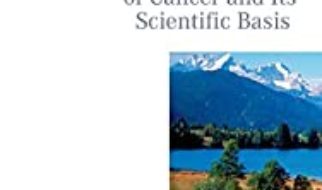Contact Dr. Lu for information about cancer treatments。聯繫盧博士,獲取有關癌症治療資訊。
Controlling the metabolism of cancer cells | 控制癌細胞的新陳代謝
Contact Dr. Lu for information about cancer treatments。聯繫盧博士,獲取有關癌症治療資訊。
Leipzig researchers discover the function of succinate receptor for cancer treatment
Universität Leipzig
Credit: Photo: Dr. Claudia Stäubert
Cancer cells show unchecked rapid growth beyond tissue boundaries that is no longer stopped by normal control mechanisms. Due to this rapid growth, the metabolism of cancer cells is altered compared to that of cells that grow normally. Cancer cells use this metabolism to provide molecular building blocks and to meet their high energy needs. It has also been known for some time that metabolic intermediates activate specific receptors on the surface of cells. One such metabolite is succinate, which specifically activates a receptor found in various types of tumour.
Until now, there has been little research into whether and how this receptor influences the metabolism, and thus also the survival, of cancer cells. Scientists at Leipzig University have now discovered that cancer cells need the succinate receptor to control their metabolic rate, i.e. the consumption of oxygen and the production of energy. “Without the succinate receptor, cancer cells die because they lose control over central cellular metabolic pathways,” explained study head Dr Claudia Stäubert from the Rudolf Schönheimer Institute of Biochemistry. The research findings were recently published in the journal Cancer Letters.
Increased death of cancer cells observed
One of the characteristic changes in the metabolism of cancer cells is known as glutaminolysis – a dependence on the amino acid glutamine for energy production. By combining metabolic analyses with image-based studies to monitor cancer cell survival, the Leipzig-based scientists were able to show that cancer cells that exhibit such a dependence on glutamine depend on the function of the succinate receptor for their survival. “Knockdown of the receptor caused increased death of cancer cells. This was also detectable in combination with known therapeutics,” said Dr Stäubert.
The succinate receptor therefore represents a potential target for the development of chemotherapeutic agents for cancer treatment. Further research will need to identify relevant pharmacological inhibitors of the receptor and evaluate their potential as drugs in cancer therapy.
The study at the Rudolf Schönheimer Institute of Biochemistry was carried out in cooperation with the Carl Ludwig Institute for Physiology at Leipzig’s Faculty of Medicine.
Original title: “Succinate receptor 1 inhibits mitochondrial respiration in cancer cells addicted to glutamine”, in Cancer Letters, https://doi.org/10.1016/j.canlet.2021.11.024
Journal
Cancer Letters
Method of Research
Meta-analysis
Subject of Research
Cells
Article Title
Succinate receptor 1 inhibits mitochondrial respiration in cancer cells addicted to glutamine
Article Publication Date
20-Nov-2021
Disclaimer: AAAS and EurekAlert! are not responsible for the accuracy of news releases posted to EurekAlert! by contributing institutions or for the use of any information through the EurekAlert system.
刘 大卫
Trust God, not sinful people. Worship God, but not things/people. Let God lead you, but not let others lead you. 相信上帝,而不是有罪的人。 敬拜神,而不是事/人。 讓上帝帶領你,但不要讓別人帶領你。

